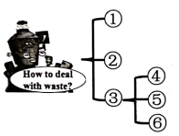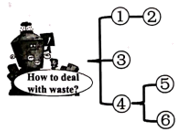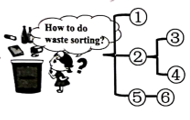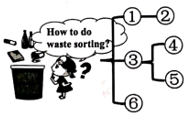1 . When you have dinner, you follow table manners. When you have a lesson, you obey the rules in the classroom. But have you ever thought about needing to mind your manners in the digital world when you use phones, e-mails and social medias, like QQ, We Chat, Twitter, etc?
As new research by Oxford University noted. “It’s just important to treat people with respect online as it is in real life.” The study came up with some rules of good manners to live by in the digital age.
Their first advice is not “over-sharing” on social media, which means not posting every detail about your life online, because some of us are not creative enough to always show off our thoughts and lives on social media.
The manners also include not looking through others’ phones and not gossiping about others over message, especially when you choose “reply all” to send a message to a group of people. Although gossip is not a harmful chat that can make conversations exciting, it can also be a way to spread something untrue about other people. Gossip can be even stronger on social media than in real life, so it’s better not to gossip.
Moreover, when you have bad news for someone, do not leave text messages on social media, chat with him or her by calling or sending personal messages.
Nowadays technology has offered us different ways to contact others. It is important to remember how to behave towards others online.
1. According to the passage, we shouldn’t over-share details of our life on social media because_____.| A.it may allow bad people to steal our personal information easily |
| B.nobody is interested in our personal life unless you are a star |
| C.over-sharing will disturb others although you may have creative thoughts and lives |
| D.not each of us can express our thoughts and lives creatively |
| A.随笔 | B.恶意评论 |
| C.爱说长道短的人 | D.流言蜚语 |
| A.The author mentions 5 kinds of social media. |
| B.No one would mind your behaviour on social media. |
| C.The author gives some advice on how to behave on social media. |
| D.Only few people follow the social manners in the digital world. |

| A.A | B.B | C.C | D.D |
2 . In China, each year we produce about 150 million tons of city waste according to a report. Where does the waste go? People usually burn or bury(埋)it. On the other hand, we receive waste from some developed countries. We get useful materials from it. What about the useless part? Still burned or buried. But is it a proper way?
Waste pollutes the environment, harms people's health and causes animals to die. It also gets in the way of green and sustainable development. We can't make money at the cost of the environment. We should leave clean water and green mountains to our next generations(一代人).
China is getting really serious about waste now.
We are taking less waste from developed countries. From January 2018, China started to stop 24 kinds of waste coming into our country. And more laws and rules about dealing with waste have been made. Anyone who breaks the law will be punished.
China also tries to put waste into good use. One example is the waste electricity factories. They burn waste to make electricity in a green way. No harmful gases or water will get into the environment.
The Chinese government is encouraging people to do waste sorting(分类). Cities like Shanghai, Chongqing and Beijing have their own sorting systems. More will join them soon. As President Xi Jinping said during a visit to Shanghai, waste sorting is a new fashion(时尚). More and more people are forming the habit of separating their waste.
1. The writer starts the passage by _________.| A.telling stories | B.comparing numbers |
| C.raising questions | D.giving suggestions |
| A.可享受的 | B.可持续的 | C.可借鉴的 | D.可复活的 |
| A.waste does harm only to the environment |
| B.those who break the law may not be punished |
| C.China stops getting waste from developed countries |
| D.waste sorting starts to become popular in China |
(①=Paragraph1 ②=Paragraph2 ③=Paragraph 3 ④=Paragraph4 ⑤=Paragraph 5
⑥=Paragraph 6)
A. | B. |
C. | D. |
3 . How do we know the time? A clock, a watch or a mobile phone can help us. However, many years ago there were no clocks and knowing the time was not so easy. Over the centuries people have developed different ways of telling the time.
About 5, 500 years ago, the Egyptians invented the sun clock. This was a tall stone building. Its shadow(影子) showed the movement of the sun. So people were able to know midday. The Egyptians made a sundial about 3, 500 years ago. It was smaller than the sun clock and could let people know the time for half a day. On cloudy days or at night it was impossible to tell the time with a sun clock or a sundial. Water clocks were the first clocks not to use the sun. The idea is simple. Water flows(流动) from one bottle to another. When the water reaches a certain level, it shows the hours. The Egyptians used water clocks about 3, 400 years ago. These clocks were popular in the Middle East and China. But they failed to make people know the exact time.
In the 13th century, the mechanical clock was invented. This was more exact, but it was expensive to make one. Over the next few centuries it was developed. For example, springs(发条) were added around 1500. This enabled people to get the correct time and allowed clocks to be smaller. In 1927, the first quartz clock was developed. Clocks became cheaper to build. It’s also cheaper for ordinary people to own a clock. People began depending on them more and more to run business, markets and so on. More recently, in 1956, came the digital clock. And nowadays satellites send our mobile phones the time to the exact second.
There has been a lot of progress in timekeeping. Clocks are always changing but some things never change. Many of us still have trouble getting out of bed on time and not being late for school or work.
1. According to the passage, we can’t use ________ to tell the time on a rainy day.| A.water clock | B.sun clock | C.digital clock | D.mechanical clock |
| A.现代的 | B.特殊的 | C.富有的 | D.普通的 |
| A.Four. | B.Five. | C.Six. | D.Seven. |
(①=paragraph 1 ②= pargaph 2,…)
A. | B. |
C. | D. |
| A.The importance of time. | B.The development of timekeeping. |
| C.The inventions of clocks. | D.The history of a digital clock. |
4 . When your pen is broken, the battery(电池)in your toy runs out, or you have some leftover(吃剩的)food, what do you do with these things? You will probably throw them all into one bin. But actually, all kinds of rubbish need to be sorted(分类) separately.
Rubbish sorting is a big issue (议题)worldwide. In recent years, some Chinese cities have been working hard on it, Shanghai has worked with Alipay to create a“green account(账户)” service for its residents(居民). Account holders get points by sorting their rubbish correctly. Through the Alipay app, they ran exchange the points for milk, phone cards and other products . The city is asking all of its residents to sort their rubbish into four groups: wet, recyclable, harmful and dry. Wet waste is also known as household waste. Paper, metal and glass are recyclable waste. Medicine and batteries are harmful waste. Finally, any waste that's not wet, recyclable or harmful will go in the "dry waste" bin. Many other Chinese cities are also doing this. Shenzhen has been sorting its rubbish into the same four groups since 2012. Students there must study waste-sorting guidebooks.
If you don’t sort your rubbish, it will go to a landfill(垃圾填埋场) and be buried together. These landfills can take up large areas of ground. Some rubbish can pollute the soil and groundwater and it can also do harm to the environment around us. China is improving its waste-sorting efforts. There is still a long way to go.
1. How should we deal with all kinds of rubbish?| A.We can throw them all into one bin |
| B.We can sort them separately. |
| C.We can throw them away freely. |
| D.We can reuse them all |
| A.By creating a "green account" service with the help of Alipay. |
| B.By paying people to sort their rubbish correctly. |
| C.By allowing people to exchange rubbish with each other. |
| D.By providing its residents with guidebooks to help them |
| A.Leftover food and batteries. |
| B.Metal and medicine. |
| C.Batteries and medicine |
| D.Paper and glass. |
| A.Where we can bury our waste. |
| B.Why we should sort our rubbish properly. |
| C.What kinds of waste can pollute the environment |
| D.How some kinds of waste can be reused and recycled. |
| A.Shenzhen has been sorting its rubbish for 10 years. |
| B.All the students have to take waste-sorting classes at school |
| C.As for rubbish sorting, we Chinese still have much work to do. |
| D.Burying is the only way of dealing with rubbish |
5 . Many of us wish we would have longer weekend, but for about 18,000 students in Colorado, that wish is coming true. A school district outside Denver has decided to shorten its week to four days—from Tuesday to Friday, and the first school year on this new timetable just started, CBS Denver reports. It began on Tuesday, August 14, because the day students get off is everyone’s least favorite: Monday.
Although this may sound like a dream come true, it means students will have to sit through longer school days to work more for the hours they’ve lost, according to The Denver Post. So the timetable seems more crowded than ever.
The decision wasn’t made just to give students more days off, though, it had practical purpose. The district says that it will save $ 1 million by not having buses on Mondays and spending less on things like electricity and water. That means a lot to the school. However, there are different voice. Parents may pick up some the cost of this change, though, since many will now need to stay home with their kids. If they go to work, they have to find people to take care of their children.
This isn’t the first district in the state to introduce a four—day week, 55 % of the state’s schools do this, but most of them are in the countryside, according to The Denver Post. Several schools in Oklahoma made some move earlier this year, and some of them told CBS News Reports that more teachers wanted to teach there after the change. Most of these teachers have a lot of teaching experience. About 560 districts in timetable influence students’ ferformance.
1. What happens to the students in Colorado?| A.They have shorter summer holidays. |
| B.They go to school every day. |
| C.They have classes only on Monday. |
| D.They have longer weekend. |
| A.go for | B.pay for | C.look for | D.stand for |
| A.They would like to work here with four-day week. |
| B.They’ll be given more money than those in other states. |
| C.Students are much more money creative in class in this place. |
| D.Students behave better because of longer weekends. |
| A.Students need to study harder to make up for the time. |
| B.Parents may spend more time and money on their children. |
| C.People in Colorado speak with one voice when facing the decision. |
| D.It’s not clear whether the new timetable is good for students or not. |



